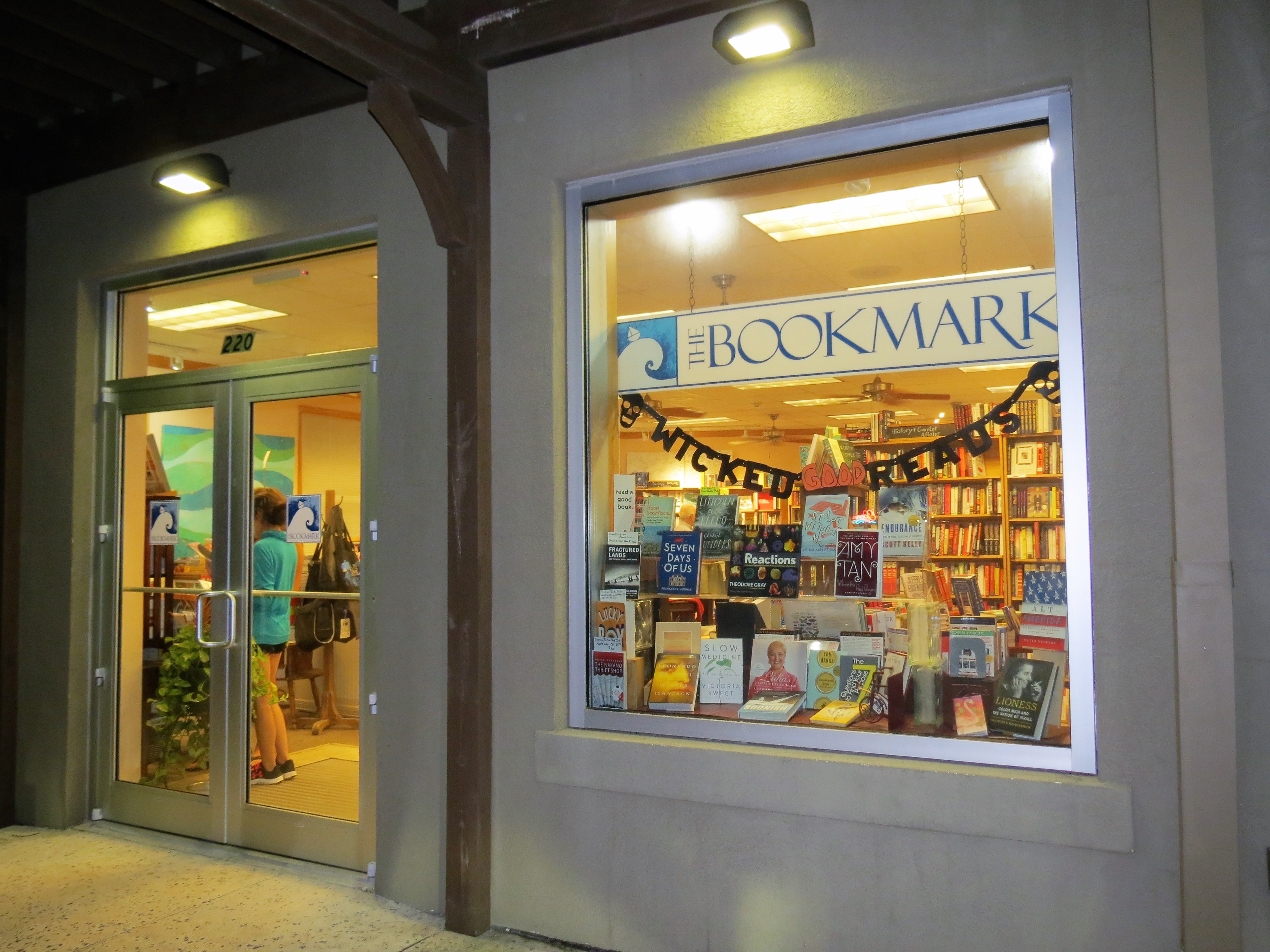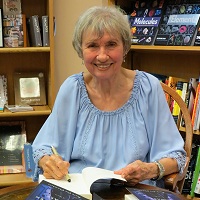
I’ve always felt my childhood was marred because we didn’t have a library in our town. We had beaches with sand as white as sugar, water from the Gulf of Mexico that touched places we might never see. But no books. I longed for a well-stocked library, but all I had was hope that a family would move to our small town and bring books with them. My family didn’t seem to find a lack of books something to worry about. Mama had her crocheting and soap operas on the radio, Daddy had hunting and fishing when he wasn’t busy protecting us as he sported his deputy sheriff badge, and my dentist uncle brought home pulp fiction detective magazines that Mama had forbidden me to touch.
Me? Nothing filled that void for me but hope. Still, I started school without books and discovered something more wonderful than the colored chalk our teacher used to draw a calendar of September. She had a book! I would eventually learn that all the teachers had books, but just starting school, I believed pretty Mrs. Howell was the only one who owned one and not just any book, but one called Cinderella. I’d never heard a name so beautiful. On the cover was a young woman as beautiful as her name, dressed in a long, yellow bouffant dress cascading with ruffles and bows and all things wonderful.
Each day Mrs. Howell read a little of Cinderella to us, and I suppose she knew we were hungry for books because every Friday one person from a list she kept in her desk would be allowed to take Cinderella home for the weekend. I thought my Friday would never arrive. How the time dragged until the day I ran to her desk after school and told her it was my turn to take Cinderella home. She looked at me and said quite simply, “Oh, Ruth, it’s lost. I don’t have it any more.” Her eyes weren’t red from weeping, she didn’t pound the floor with her fists. An important part of her world had obviously been stolen, and she appeared unconcerned about it. I hoped I never took anything of beauty for granted. I realized in that moment, even though I was only six years old, that I still had hope, and no one could ever steal it or the wonder it brought me.
I continued going to people who moved into town to see if they brought any books with them. That was how I came to read my first novel, A Girl of the Limberlost, by Gene Stratton-Porter. I identified with the girl though I didn’t possess the courage she did in collecting specimens from a swamp. I could, however, feel her shame in having to carry her lunch to school in a syrup bucket.

I was growing older, and when my parents realized I could read, they knew they would have to be more careful and keep their secrets hidden. One they kept hidden in plain sight. I had found a need for hope beyond books. I prayed that God would not let Mama turn out to be my stepmother.
It was my reading that had uncovered their secret. When I was very young, they let me see snapshots with writing on the backs. The woman had my name, and she stood with Daddy. I knew then why a room grew quiet when I entered it. Things fell into place and I knew who she was, even her name. Hope dimmed and my fate was sealed when a girl at school said one day, “She isn’t your real mother, is she?” I didn’t want a stepmother and ran, ran until my side hurt, but I couldn’t escape my stepmother.
I realized my parents didn’t want me to know who Mama really was so I began the long years of protecting them from my awakening. It was a heavy burden for a child to carry. Hope had been stolen after all, and I was left with guilt. Should I love the woman with my name, the woman who carried me under her heart, or the woman who cared for me through the measles and chicken pox and all the childhood illnesses? It was a heavy burden, even for a teenager, and the whispers of stepmother never left me.
I was an adult when I came to realize that I still had hope after all. Where would I have been without my escape through writing, my hope for making a contribution? I had to make my time on earth count. I had to repay a debt to a woman with my name. I was a Cinderella child. I had a stepmother who was sometimes wicked, but I saw that both Cinderella and I not only had stepmothers, but also hope in a glass slipper or a published book. Thinking of all I had written, of the stories, essays, plays and novels, I wondered if they would have been written had I not used them as a way of running until my side didn’t ache any more. Oh, the wonder of it all. Both my mothers, they were the wonder all along, never once calling me a stepchild.
About the Author: Ruth Coe Chambers
 Ruth Coe Chambers takes pride in her Florida panhandle roots and her hometown of Port St. Joe has inspired much of her writing.
Ruth Coe Chambers takes pride in her Florida panhandle roots and her hometown of Port St. Joe has inspired much of her writing.
She is indebted to the creative writing classes at the University of South Florida where she found her “voice” and began writing literary fiction. Listed in the Who’s Who of American Women. She has recently republished one novel, and published it’s sequel, and has written two award-winning plays. She is currently working on the third novel in her Bay Harbor Trilogy. She has two daughters and lives with her husband and one very spoiled Cairn terrier in Neptune Beach, Florida.
Her two earlier novels include The Chinaberry Album and Heat Lightening.
